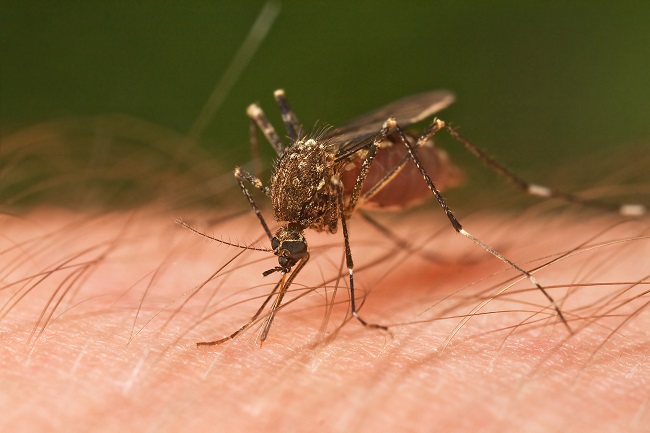
The inept handling of Encephalitis in Bihar is there for everyone to see. It is sad and appalling to see the apathy in our health care system.
The monsoons are around the corner.
Malaria, which was supposed to have almost disappeared from Delhi is back with a vengeance. Chikungunya is an emerging, mosquito-borne disease caused by an alphavirus, Chikungunya virus. The disease is transmitted predominantly by Aedes aegypti and Ae. albopictus mosquitoes, the same species involved in the transmission of dengue.
Over the years, we have learned that Chikungunya results in high fever accompanied with severe debilitating pain, especially in joints. Rashes can also be seen in severe cases. Weakness, dizziness, continuous vomiting leading to dehydration, very poor oral intake and bleeding are dangerous signs. We have been told that we must not let water collect anywhere and many people have been fined because of their errant ways in managing water.
When confronted with an epidemic, politicians blame bureaucrats who will blame the Municipal Corporation of Delhi who in turn will blame the politicians. Ministers will justify and find reasons on how this happens every year and happened under other Governments. TV anchors will scream at the top of their voices about accountability and newspapers will give these stories headlines, gradually relegating them to inside pages.
However, the poor patients will be left running from one hospital to another, crying for their loved ones.
The wonderful cycle of life will continue. Monsoons will retreat, water logging will dry up, hospitals will see lesser patients, the subject of ill patients will disappear from the news channels and hopefully, mosquito borne diseases will disappear for one more year. Everyone will heave a collective sigh of relief and as always happens in our country after every epidemic or emergency, the problem of this year would have been “managed” and given the short public memory, this year’s challenges would soon be forgotten.
Knee jerk reactions to a health scare seems to be the norm rather than the exception with us.
The monsoons, the mosquitoes and the diseases come every year. We know that this problem recurs every year and will continue to recur in the years ahead till we are able to eradicate the disease. So why is it that we are not able to plan earlier and reduce the severity of the impact of these mosquito borne diseases? Why don’t our governments have a task force that will focus on planning for the coming year?
It would be fairly simple for the government to take the following steps before the monsoons (though this may already be too late for this year):
- Identify and map the areas – Hopefully, after last years’ experience, the authorities would have mapped all the areas in our cities which they have identified as prone to collection of water. With proper planning, we can ensure that steps are taken to rectify all such areas well before the onset of the monsoons.
- Epidemiological evidence – Based on the records for the current year our health researchers would be aware of the strain of the virus and medication needed to handle this.
- Quick reporting of the outbreak is essential – this would mean setting up situation rooms / monitoring and evaluation centres in areas where we have seen the problem. These need to be manned and monitored with clear accountability and responsibility documents and communicated.
- Laboratories — These become a huge bottleneck every year. We should ensure that laboratories are identified and communication sent to the citizens. And of course, we need the tariffs for tests agreed and announced in advance.
- Feedback from laboratories need to be collected on an hourly basis and analysed for course correction. Delays can prove to be fatal for some patients. The teams that should collect feedback should be ready now rather than hurriedly put together before the mosquitoes strike.
- Funding for the epidemic needs to be set aside for all the actions that need to be taken now. Scrambling for budgets and ad hoc approvals is time consuming and unacceptable when the time lost can save lives of human beings.
- Hospitals, clinics, nursing homes and doctors should be identified and numbers and prices need to be widely advertised well before the outbreak.
- Education of the citizens is an ongoing matter and should become a part of the curriculum of schools. Education should be in the areas of what to watch out for and where to report the disease. In addition, people need to be educated on making homes mosquito free; spraying all rooms with safe aerosols; using mosquito nets; covering water containers; drying water tanks, pets’ bowls and potted plant plates; not letting water stagnate and other such preventive steps.
Once a clearly documented plan is agreed and in place, getting it activated will be quick.
If Sri Lanka, one of the worst victims of malaria, can become malaria free, as certified by the World Health Organisation in September 2016, is it too difficult to hope that India too can reach levels of cleanliness where malaria and other mosquito borne diseases will no longer plague our citizens?
Finally, no mass health programme can work unless there is clear accountability established. No politician, bureaucrat or health worker can be permitted to throw up their hands and shrug their shoulders.
Health is a state subject, but citizenship of India is not.
Collaboration between the centre and the state is essential if epidemics need to be handled.
The blame game needs to stop immediately.
